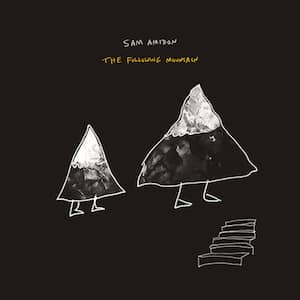 Sam Amidon: The Following Mountain
Sam Amidon: The Following Mountain
Nonesuch – 2017
The Following Mountain, the sixth studio album from experimental folk artist, singer and multi-instrumentalist Sam Amidon marks a departure from his partiality to the reworking of traditional song to a collection of tunes that knock on the doors of both jazz and ambient electronica.
Amidon’s second venture since the luminary electric jazz guitarist, Bill Frisell chimed through the lamenting, pastoral Lily-O in 2014, began as a heavily improvised session. Over a springtime weekend Amidon worked with four elite musicians; collaborator Shahzad Ismaily, saxophonist Sam Gendel, Milford Graves on kit and Juma Sultan on percussion. Amidon subsequently travelled to London where he and producer Leo Abrahams reverse engineered the recordings, slicing up the tracks and to the subtlest nuance, worked them into nine highly musical, original songs, which Amidon describes as “a walk through the thickets of the imagination”.
The jaunt begins with Fortune and what seems to be a rough sketch. Cyclical guitars, wistful piano, waves of synthesis and whispering chimes all swirl together awkwardly as if coming into existence under Amidon’s rich, rough baritone. Further instrumental motifs are introduced and cut-off whimsically almost shunned as the jarring and somewhat cacophonic Ghosts clatters forth. Graves’ pounding freeform wars with a jagged fiddle, Amidon wails ‘I’m out of ideas’ seemingly unable to find a way for these quarrelling parts to function in harmony.
The tone softens with pastoral Juma Mountain, the album’s leading single. Introduced by Sultan’s gently hypnotic congas, the tune drifts along marked by subtle changes in rhythm and shimmering ambience; it’s beautiful, soothing and somnambulistic.
Having deconstructed the Brooklyn session, Amidon and Abrahams, a disciple of Brian Eno stitch in its fragments over a drum and guitar loop in Another Story Told, Amidon’s tracked in voice calls ‘fiddle’ into existence, crude and dry before the obliging instrument melds into a duet with his haunting cries.
The suitably named Gendel in 5 is a mysterious sax laden lament on the passing of time. In juxtaposition to Ghosts Amidon is in full stride here, deft fingerstyle rolls beautifully over Graves’ broken, brushed drums just to sit back his lyrics drift seamlessly between stream-of-consciousness and the folkloric. One wonders whether with lines such as “looking back from the fallen habitation, haphazard words found in drifting conversation”, this is partly a reflection on the techniques used in creating these songs.
There’s a darker turn as heavily processed drums pound through a swell of organs and synths on instrumental Trouble in Mind, briefly punctuated by bright guitars slicing through like a ray of sunlight through thick cloud.
Warren is the album’s swan song, a slow building pastoral whose constituent parts unravel around it. Amidon is waning, “the flame is low, the lamps burn low, the end of a train of thought” he suggests softly before cutting loose a guttural, other-worldly sigh as the track draws to a close. April is 11:47 of lairy free jazz, the ‘thicket’ from where these nine flowers have been pulled. Some moments are easily recognisable from previous tunes, but it’s best to just sit back and enjoy the trippy cacophony, which makes for an abrupt ending and perhaps a return to the wilderness of the subconscious.
There’s something personal about The Following Mountain, it’s as though it’s being put together in real-time; this makes it a refreshingly disjointed record that almost describes the creative process that defines it.
Order The Following Mountain via Amazon

